
- Majors & Careers
- Online Grad School
- Preparing For Grad School
- Student Life

Top 9 Best Online PhD Economics Programs [2024]

Economists have excellent job prospects in today’s labor market. With a doctorate in economics from a reputed university and strong academic record, you’ll find many well-paid job opportunities in academia or policy. Almost every field needs economists — organizations rely on economists’ statistical, analytical, and problem-solving skills to find solutions to important issues.
Most students need a master’s of economics degree to move forward with the PhD. But some schools accept transferable credits from related programs, too!
However, not everyone can afford to earn a doctorate on campus. So, an online PhD economics degree is a great alternative.
Below are some of the best online economics PhD programs and helpful information on jobs, salaries, costs, preparation tips, and more.
Table of Contents
Best Online PhD Programs in Economics
Ready to pursue your doctorate in economics online? Let’s dive into our list of top PhD economics online programs.
Liberty University

PhD in Public Policy – Economic Policy
Liberty University offers opportunities to pursue higher education across diverse disciplines with a foundation of Christian ethics. This 100% online PhD in economics program allows you to learn from established leaders in economic policy-making.
- Courses : Economic policy studies, economics & public policy, policy analysis & research design
- Credits : 60
- Duration : 3 years
- Tuition : $595 per hour
- Financial assistance : Grants, scholarships, and loans.
- Acceptance rate : 50.1%
- Location : Lynchburg, Virginia
Atlantic International University, School of Business and Economics

Doctor of Economics
AIU is a primarily online university that emphasizes freedom of inquiry and free thought exchange between students and faculty. This PhD in economics online degree aims to help students who want to pursue research or teaching in economics or business.
- Courses : Economics of growth & development, microeconomic research, mathematics for economists
- Tuition : Refer tuition page
- Financial assistance : Scholarships
- Acceptance rate : N/A
- Location : Honolulu, Hawaii
Bircham International University
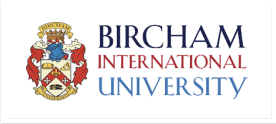
Doctor – Economic Science
Bircham International University is a global educational institution with a decentralized structure offering higher education programs in many languages. The university’s PhD economics distance learning program helps students develop a deep understanding of how people see value in the production, consumption, and distribution of goods and services.
- Courses : Micro- and macroeconomics, capital markets, economic analysis.
- Credits : 45-72
- Duration : 24 months
- Tuition : $7,650 to $12,240
- Location : Miami, Florida
Ottawa University
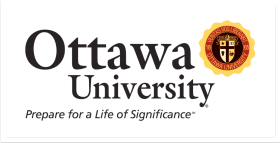
Doctor of Business Administration
Ottawa University is affiliated with the Ottawa tribe of Oklahoma and the American Baptist Church. It offers a range of online programs to mold students into valuable leaders. This distance PhD economics program is mostly online but requires six two-day residencies. Finally, the program offers courses in strategy, capital management, and finance with a focus on economics.
- Courses : Finance value generation strategy, strategic human capital management, informed decision-making
- Credits : 56
- Cost : $4,887 per semester
- Acceptance rate : 70.3%
- Location : Ottawa, Kansas
California Baptist University

California Baptist University is a non-profit, private university that ranks #34 of the best western regional colleges. Although not an entirely online doctorate in economics, this DBA program offers courses in economics, especially on applying theories of economics to business.
- Courses : Applying economic theory to business, international business in global markets, and quantitative research
- Duration : 36 months
- Tuition : $795 per unit
- Financial assistance : Grants, loans
- Acceptance rate : 80.2%
- Location : Riverside, California
Hampton University Online

Doctor of Philosophy in Business Administration
Hampton University Online provides opportunities for adults to continue their studies through mostly online means and with a scientific approach. This PhD is a hybrid business administration program that involves two compulsory four-week summer residencies and covers managerial economics as part of the program.
- Courses : Managerial economics, organization theory & practice, organizational behavior
- Credits : 61
- Duration : 3.5 years
- Tuition : $695 per credit
- Financial assistance : Scholarships, grants, work-study, loans, and military benefits.
- Acceptance rate : 36%
- Location : Hampton, Virginia
Marymount University, College of Business, Innovation, Leadership, and Technology (BILT)

Online DBA in Business Intelligence
Marymount University was ranked #31 by US News & World of all southern regional colleges. This online Doctor of Business Administration is equivalent to an economics PhD online program as you can study economics for business decision-making and courses in strategy with a data-driven approach.
- Courses : Economics for business decision making, using data for business intelligence, and strategy in a changing climate.
- Credits : 36
- Tuition : $1,140 per credit hour
- Financial assistance : Grants, scholarships, loans, student employment, and assistantships.
- Acceptance rate : 85.3%
- Location : Arlington, Virginia
William Howard Taft University
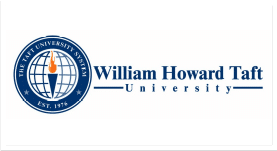
William Howard Taft University is a leader in distance education and aims to provide affordable and quality education in business, law, education, and other disciplines. This DBA program includes several courses in economics and its application in the business sector.
- Courses : Designing economic business strategies, global economy, and global business practices & challenges.
- Duration : 37 months
- Tuition : $360 per credit
- Financial assistance : Scholarships, grants, military benefits, loans, and employer reimbursement.
- Location : Lakewood, Colorado
Baker College
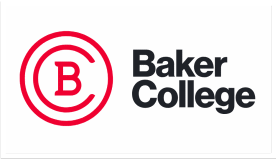
Baker College was named one of Newsweek’s top American online schools and offers fully online and hybrid programs in fields such as business, health science, and education. This DBA program has microeconomics and macroeconomics courses and explores how business leaders implement successful global strategies with limited resources.
- Courses : Global financial economy, leading 21st-century organizations, managing in a worldwide context
- Tuition : $915 per credit hour
- Financial assistance : Scholarships, grants, and loans.
- Acceptance rate : 73%
- Location : Owosso, Michigan
What Do I Need to Get a PhD in Economics?
You will likely need an undergraduate or postgraduate degree in economics or a related field to apply for a PhD in economics program. Certain programs may have other prerequisites, so check with the admissions office well in advance of the application deadline.
Once accepted, you’ll have to study various courses in economics, finance, business, management, mathematics, statistics, and strategy to earn your PhD in economics online degree.
Finally, you’ll have to pass examinations and other assessments, including a final qualifying exam. Most programs also have a research component, which means submitting a thesis or dissertation.
Preparing for an Economics Doctorate Program
Our advice? Prepare early for your PhD in economics program.
At the undergraduate level, consider taking more courses in subjects like mathematics, statistics, and calculus. It also helps to work with faculty, conduct undergraduate research, and complete professional internships whenever possible. All this lays the groundwork to prepare you well for a PhD in economics program.
Things to Consider When Choosing an Online PhD Economics Program
The right program for you depends on a range of personal factors. Consider the following when assessing programs to narrow it down:
- Make sure the specializations and subjects offered by the program match your passions and will help you achieve your career goals.
- Review available research options and make sure these also match your goals
- The faculty should have a strong reputation, especially in your field of choice
- Ensure the costs fit your budget or that there are sufficient funding options available
- Look at where past alumni are now working, and see how this fits with your ideal future
Why Get a Doctorate in Economics?
A doctorate in economics opens doors to some of the best jobs in academia and policy. According to the Bureau of Labor Statistics, an economist’s median salary is $105,630. Even better, jobs in the field are expected to grow by 13% from 2020-2030, higher than the average of all occupations.
Jobs and Salaries for Doctors of Economics
A PhD in economics online credential can equip you for roles in business, government, research, and education. Here are some top jobs for graduates, with average salaries for each:
- Economist ( $79,352 )
- Statistician ( $78,596 )
- Financial Manager ( $96,045 )
- Urban Planner ( $59,309 )
- Financial Analyst ( $63,195 )
What Is the Average Cost of a PhD in Economics?
According to the National Center for Education Statistics (NCES), the average tuition for a PhD in economics program is $19,749 per year. You can expect to pay around $12,500 for public university programs and $26,621 for private. Keep in mind these figures only cover tuition – you’ll also need to pay for books, technology fees, and other educational expenses.
How Long Does it Take to Get a PhD in Economics?
Typically, a PhD in economics takes 4-6 years to complete. However, you may be able to complete a doctorate in three or even two years at some universities, especially with an online PhD.
What Skills Do You Gain From a PhD in Economics?
First and foremost, you’ll gain strong mathematical, statistical, and analytical skills as part of your doctorate in economics. You’ll also learn to apply economic concepts and modeling to address issues in business, government, finance spaces. Finally, economics PHD grads gain expertise in writing, presentation, communication, and problem-solving.
Facts and Statistics about Economics PhD Holders
According to Brookings, universities awarded 1,216 PhDs in economics in 2020 — 66% to men and 34% to women. Foreign students with temporary visas earned around 60% of the doctorates.
Among the permanent residents who got doctorates in economics, 4.9% were black and 71.8% white, with the remaining graduates of Asian, Hispanic, and other descent.
Final Thoughts
Compared to online PhDs from other disciplines, you won’t find as many online PhD economics programs. However, you can find related programs, like online Doctor of Business Administration ( DBA ) or accounting with an emphasis on economics-related subjects like microeconomics and macroeconomics. This is a good substitute if your preferred university doesn’t offer a PhD economics online degree.
Considering other business-related PhD programs? Keep a clear path toward a lucrative career with our list of the highest paying PhDs .
Frequently Asked Questions
Can you get a phd in economics online.
Yes – some universities offer online PhD economics programs that you can complete online. Many of these online programs can be completed in as little as three years.
Is an Economics PhD Worth It?
A PhD in economics is one of today’s most sought-after qualifications. Economists are in high demand and have an annual median salary of $105,630 , with prospects even greater for graduates with a PhD.
How Many Years is a PhD in Economics?
A PhD in economics takes 3-6 years to complete.

Lisa Marlin
Lisa is a full-time writer specializing in career advice, further education, and personal development. She works from all over the world, and when not writing you'll find her hiking, practicing yoga, or enjoying a glass of Malbec.
- Lisa Marlin https://blog.thegradcafe.com/author/lisa-marlin/ BA vs BS: What You Need to Know [2024 Guide]
- Lisa Marlin https://blog.thegradcafe.com/author/lisa-marlin/ The 19 Best MBA Scholarships to Apply for [2024-2025]
- Lisa Marlin https://blog.thegradcafe.com/author/lisa-marlin/ 25 Best Gifts for Law Students for 2024
- Lisa Marlin https://blog.thegradcafe.com/author/lisa-marlin/ Top 5 Best Psychology PhD Programs in 2024
What Is the Best iPad for Students in 2024?
Top 6 best academic planners for 2024/2024, related posts.

- Tech Talent Crunch: Cities with More Jobs Than Workers

- The Most Under-Rated Career Advancement Tip for 2024

Top 5 Best Psychology PhD Programs in 2024

Good News For Early Careers: Skills-Based Hiring is Surging

These Are The Best States To Start Your Tech Career

This Week’s Top 5 Graduate Opportunities

Leave a Reply Cancel reply
Your email address will not be published. Required fields are marked *
Save my name, email, and website in this browser for the next time I comment.
Recent Posts
- What is a Good GRE Score?
- The 18 Best Scholarships for Black Students in 2024-2025
- BA vs BS: What You Need to Know [2024 Guide]

© 2024 TheGradCafe.com All rights reserved
- Partner With Us
- Results Search
- Submit Your Results
- Write For Us
Economics and Education PhD
Doctor of philosophy in economics and education.

Admissions Information
Displaying requirements for the Spring 2024, Summer 2024, and Fall 2024 terms.
Doctor of Philosophy
- Points/Credits: 75
- Entry Terms: Fall Only
Application Deadlines
- Spring: N/A
- Summer/Fall (Priority): December 1
- Summer/Fall (Final): December 1
Supplemental Application Requirements/Comments
- Online Degree Application , including Statement of Purpose and Resume
- Transcripts and/or Course-by-Course Evaluations for all Undergraduate/Graduate Coursework Completed
- Results from an accepted English Proficiency Exam (if applicable)
- $75 Application Fee
- Three (3) Letters of Recommendation
- GRE General Test (Optional for students applying for 2024)
- Academic Writing Sample (Optional)
Additional Degree Information
Program Guide
Doctoral Program Worksheet
Requirements from the TC Catalog (AY 2023-2024)
Displaying catalog information for the Fall 2023, Spring 2024 and Summer 2024 terms.
View Full Catalog Listing
This 75-point degree program is intended for individuals who want to acquire advanced training in the theory, methods, and practices in the economics of education. It is a highly selective program to prepare individuals for leadership roles in teaching, research, or administrative settings.
The coursework for this program consists of three parts: core courses, courses in research methods, and courses in a specialized area of study, such as higher education, early childhood education, field experimentation, or a regional focus. Students work on their dissertation under the guidance of faculty advisors within the program; additional members of the dissertation committee may be drawn from other TC Departments, and at least one committee member must be from Columbia University’s Graduate School of Arts and Sciences. All degrees are conferred by Columbia University. https://www.tc.columbia.edu/education-policy-and- social-analysis/economics-and-education/degrees/doctor-of-philosophy- in-economics-and-education-econ/
Admission to the Ph.D. program is highly selective. All applications to enter the program are evaluated on an individual and holistic basis. However, the curriculum of the degree program assumes that students have some previous coursework in economics and statistics, possess intellectual maturity, and demonstrate an interest in education policy and practice. Compelling applications for admission demonstrate the applicant’s capacity for success and also clearly explain how the Economics and Education curriculum fits with the applicant’s past experiences and future goals.
- View Other Degrees
Program Director : Professor Alex Eble
Teachers College, Columbia University 212 Zankel, Suite B
Contact Person: Katherine Y. Chung, Program Manager
Phone: (212) 678-3677 Fax: (212) 678-3677
Email: kc2610@tc.columbia.edu

PhD Program
Year after year, our top-ranked PhD program sets the standard for graduate economics training across the country. Graduate students work closely with our world-class faculty to develop their own research and prepare to make impactful contributions to the field.
Our doctoral program enrolls 20-24 full-time students each year and students complete their degree in five to six years. Students undertake core coursework in microeconomic theory, macroeconomics, and econometrics, and are expected to complete two major and two minor fields in economics. Beyond the classroom, doctoral students work in close collaboration with faculty to develop their research capabilities, gaining hands-on experience in both theoretical and empirical projects.
How to apply
Students are admitted to the program once per year for entry in the fall. The online application opens on September 15 and closes on December 15.
Meet our students
Our PhD graduates go on to teach in leading economics departments, business schools, and schools of public policy, or pursue influential careers with organizations and businesses around the world.

Ph.D. in Economics
The Ph.D. program in the Department of Economics at Columbia University trains students to do cutting edge research in economics. Students in our program do research in all major areas of economics including microeconomics, macroeconomics, econometrics, international economics, labor economics, public finance, industrial organization, development economics, and urban economics. Our department provides strong training both in theoretical economics and in applied and empirical economics. The Ph.D. program is primarily designed for students that are interested in pursuing a career in teaching and research within academia but is also useful for student interested in certain positions within governments, research organizations, or private businesses.
The first two years of our Ph.D. program is largely devoted to rigorous coursework. After the second year, however, students devote most of their time to their own research under the supervision of faculty advisors. Students in our program generally complete their Ph.D. in 5 or 6 years.
Admission to the Ph.D. program is highly selective. We receive approximately 1,000 applications each year for an incoming class of roughly 25 students. We place a high value on attracting the very best minds, and recruiting members of groups who will both enhance the diversity of research in the field and contribute to the diversity of the university’s academic and professional community.
The Ph.D. program has a long and illustrious history. Alumni of the program include some of the most distinguished economists of the last century – including Nobel Prize winners Kenneth J. Arrow, Milton Friedman, Simon Smith Kuznets, and William S. Vickrey.
- Program Description
- Admissions Information
- Placement Information
- Student Life
- Frequently Asked Questions
- Program Requirements
- Announcements
- Graduate Student Appointments
- Office Hours
- List of 2nd Year Fields
- PhD Administrative Forms
- Job Market Candidates
- Honors and Prizes
- 1st Year Students (2023)
- 2nd Year Students (2022)
- 3rd Year Students (2021)
- 4th Year Students (2020)
- 5th Year Students (2019)
- 6th Year Students (2018)
- 7th Year Students (2017)
- Bridge to the Ph.D. Program
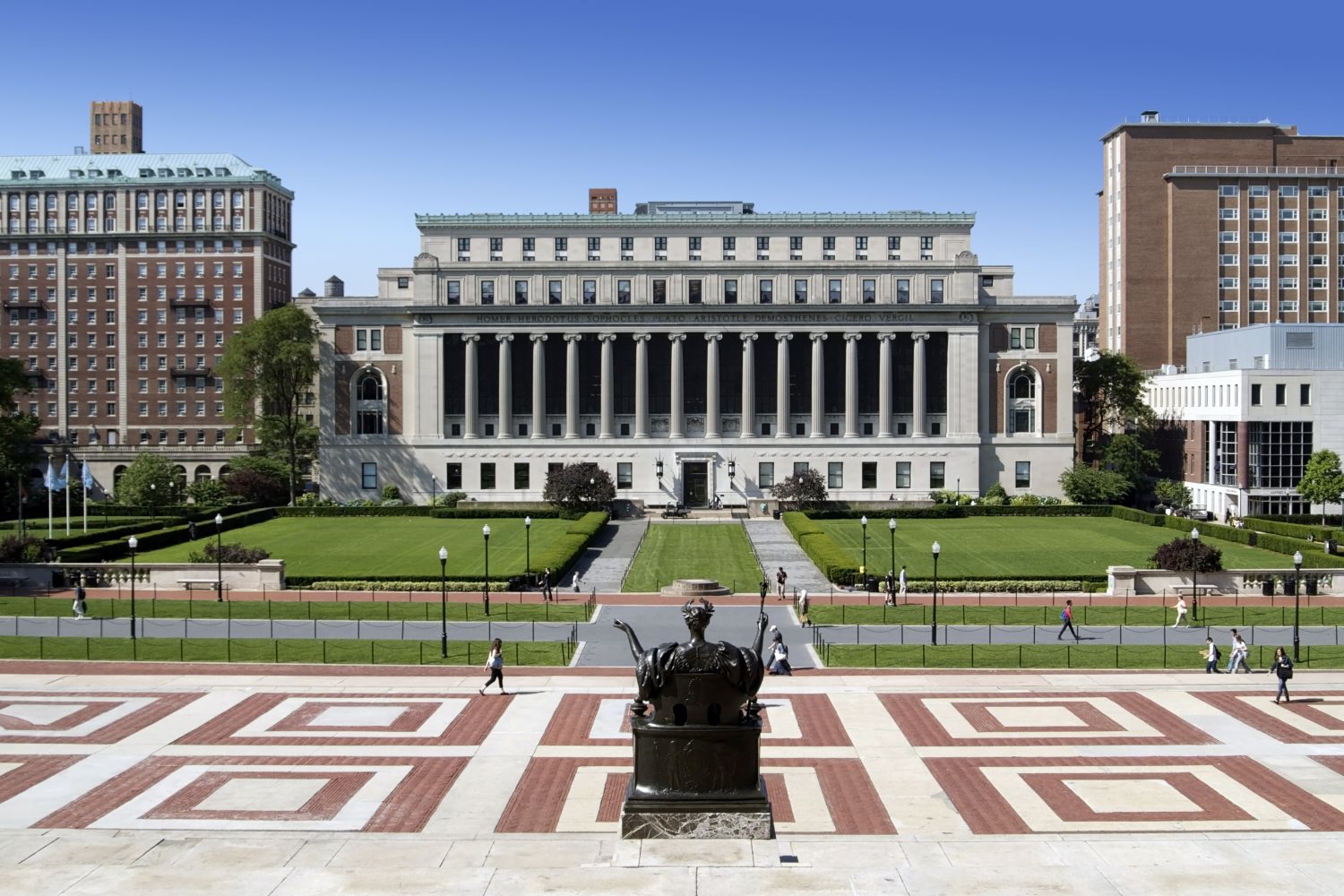
1022 International Affairs Building (IAB)
Mail Code 3308
420 West 118th Street
New York, NY 10027

College of Arts & Sciences
Financial Aid Information
The Department of Economics awards financial aid in the form of full tuition, yearly health insurance and a fellowship or service stipend to all of our PhD students up to the conclusion of the fifth year in the program.
PhD students in good standing will receive a Graduate Scholarship for the full tuition for as long as they are in the program (up to 7 years). Tuition for the 2024-2025 academic year is $2,550 per credit.
Health Insurance
PhD students in good standing will receive a health insurance subsidy for as long as they receive a graduate scholarship. The cost of student health insurance for the 2023-2024 Academic Year is $3,495. Health Insurance is charged during the Fall semester of the Academic Year.
Fellowship/Stipend Support
Fellowship/Stipend support is merit based and is provided to PhD students in order that they might pursue their academics without having to earn an income.
First Year PhD students will receive a fellowship (non-service) from the Department in the amount of $38,950 for the full academic year. The purpose of this fellowship in the first year is for PhD students to focus in on their studies and prepare for the comprehensive exams at the conclusion of the first year. Fellowship (non-service stipend) support provides a lump sum payment at the start of the quarter and tuition support.
Second Year PhD students and above will receive a service stipend in the amount of $38,950 for the full academic year. Mainly students choose between teaching assistantships (95%) and research assistantships (5%).
Sixth Year PhD students and above are not guaranteed stipend support.
Here are the different types of assistantships:
Teaching Assistantships (TAs)
TAs are hired by the department and receive a payroll check twice a month and also receive a health insurance subsidy. As a TA you are expected to work 15 hours per week. TAs can be employed an additional 5 hours per week on or off campus.
Research Assistantships (RAs)
Students on Research Assistantships are employed by the professor who hired them. Students are generally contacted by the Professor who is interested in them to work on research. RA positions receive a payroll check twice monthly and also receive a health insurance subsidy. RAs work an average of 20 hours per week during the quarter in which they are employed.
- Utility Menu
44d3fa3df9f06a3117ed3d2ad6c71ecc
- Administration
econ-hero-6.jpg

The doctoral program in Economics at Harvard University is one of the leading programs in the world. Supported by a diverse group of faculty who are top researchers in their fields and fueled by a vast array of resources, the PhD program is structured to train and nurture students to become leading economists in academia, government agencies, the technology industry, finance and banking, and global policy organizations.

Harvard University and the Department of Economics are regularly ranked amongst the top programs in the world, and the consistency of success among our graduates is inspiring. We have educated several foreign heads of state, Nobel Prize Winners, Clark Medal Winners, MacArthur Fellowship Recipients - many of whom have returned to Harvard to offer their expertise and brilliance in shaping and nurturing our students. Learn more about where we place our graduates and explore our Program to find out if a PhD in Economics is a good fit for you.

Program Requirements
As a PhD student in the Economics program, students will spend the first two years in the program engaged in rigorous coursework designed to develop a foundational understanding of economics. In the following years, students transition to research under the guidance of strong faculty mentorship and participate in field workshops. In the final year, students conduct independent research and complete a dissertation.

The department of Economics at Harvard University is committed to seeking out and mentoring scholars who wish to pursue a rigorous and rewarding career in economic research. Our graduates are trailblazers in their fields and contribute to a diverse alumni community in both the academic and non-academic sectors. We invite you to learn more and apply to the PhD program in Economics.

Financial Support
Students have access to a variety of funding and financial support opportunities.
- Research Funding
- Teaching Fellowships and assistants
- Additional external and internal resources
Learn more about financial support
Upcoming Events
Seminar in law, economics and organizations, location: .
Emma Harrington (Virginia) and Hannah Shaffer (Harvard) "How Individual Bias Becomes Systematic Discrimination: Prosecutors' Imperfect Check on Police Arrests"... Read more about Seminar in Law, Economics and Organizations
Seminar joint in Macroeconomics and International Economics
Ariel Burstein (UCLA) ... Read more about Seminar joint in Macroeconomics and International Economics
Seminar in Industrial Organization
Mert Demirer (MIT, Sloan) " Do Mergers and Acquisitions Improve Efficiency: Evidence from Power Plants " (with Ömer Karaduman)
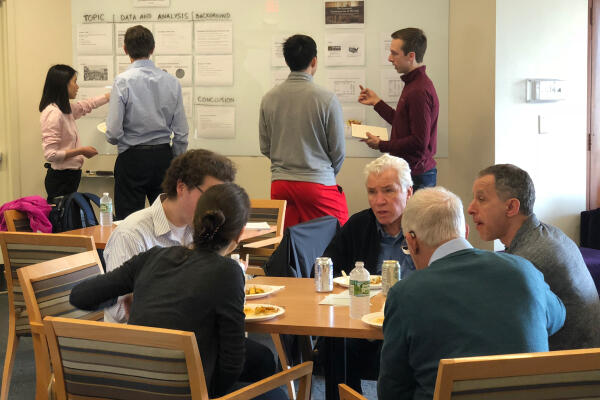
View all Workshops

View all Seminars
- Skip to Content
- Bulletin Home

- Degree Charts >
- Economics (PhD)
- Around Campus
- Academic Program
- Administration
- Arts at MIT
- Campus Media
- Fraternities, Sororities, and Independent Living Groups
- Medical Services
- Priscilla King Gray Public Service Center
- Religious Organizations
- Student Government
- Work/Life and Family Resources
- Advising and Support
- Digital Learning
- Disability and Access Services
- Information Systems and Technology
- Student Financial Services
- Writing and Communication Center
- Major Course of Study
- General Institute Requirements
- Independent Activites Period
- Undergraduate Research Opportunities Program
- First-Year Advising Seminars
- Interphase EDGE/x
- Edgerton Center
- Grading Options
- Study at Other Universities
- Internships Abroad
- Career Advising and Professional Development
- Teacher Licensure and Education
- ROTC Programs
- Financial Aid
- Medical Requirements
- Graduate Study at MIT
- General Degree Requirements
- Other Institutions
- Registration
- Term Regulations and Examination Policies
- Academic Performance and Grades
- Policies and Procedures
- Privacy of Student Records
- Abdul Latif Jameel Poverty Action Lab
- Art, Culture, and Technology Program
- Broad Institute of MIT and Harvard
- Center for Archaeological Materials
- Center for Bits and Atoms
- Center for Clinical and Translational Research
- Center for Collective Intelligence
- Center for Computational Science and Engineering
- Center for Constructive Communication
- Center for Energy and Environmental Policy Research
- Center for Environmental Health Sciences
- Center for Global Change Science
- Center for International Studies
- Center for Real Estate
- Center for Transportation & Logistics
- Computer Science and Artificial Intelligence Laboratory
- Concrete Sustainability Hub
- D-Lab
- Deshpande Center for Technological Innovation
- Division of Comparative Medicine
- Haystack Observatory
- Initiative on the Digital Economy
- Institute for Medical Engineering and Science
- Institute for Soldier Nanotechnologies
- Institute for Work and Employment Research
- Internet Policy Research Initiative
- Joint Program on the Science and Policy of Global Change
- Knight Science Journalism Program
- Koch Institute for Integrative Cancer Research
- Laboratory for Financial Engineering
- Laboratory for Information and Decision Systems
- Laboratory for Manufacturing and Productivity
- Laboratory for Nuclear Science
- Legatum Center for Development and Entrepreneurship
- Lincoln Laboratory
- Martin Trust Center for MIT Entrepreneurship
- Materials Research Laboratory
- McGovern Institute for Brain Research
- Microsystems Technology Laboratories
- MIT Center for Art, Science & Technology
- MIT Energy Initiative
- MIT Environmental Solutions Initiative
- MIT Kavli Institute for Astrophysics and Space Research
- MIT Media Lab
- MIT Office of Innovation
- MIT Open Learning
- MIT Portugal Program
- MIT Professional Education
- MIT Sea Grant College Program
- Nuclear Reactor Laboratory
- Operations Research Center
- Picower Institute for Learning and Memory
- Plasma Science and Fusion Center
- Research Laboratory of Electronics
- Simons Center for the Social Brain
- Singapore-MIT Alliance for Research and Technology Centre
- Sociotechnical Systems Research Center
- Whitehead Institute for Biomedical Research
- Women's and Gender Studies Program
- Architecture (Course 4)
- Art and Design (Course 4-B)
- Art, Culture, and Technology (SM)
- Media Arts and Sciences
- Planning (Course 11)
- Urban Science and Planning with Computer Science (Course 11-6)
- Aerospace Engineering (Course 16)
- Engineering (Course 16-ENG)
- Biological Engineering (Course 20)
- Chemical Engineering (Course 10)
- Chemical-Biological Engineering (Course 10-B)
- Chemical Engineering (Course 10-C)
- Engineering (Course 10-ENG)
- Engineering (Course 1-ENG)
- Electrical Engineering and Computer Science (Course 6-2)
- Electrical Science and Engineering (Course 6-1)
- Computation and Cognition (Course 6-9)
- Computer Science and Engineering (Course 6-3)
- Computer Science and Molecular Biology (Course 6-7)
- Electrical Engineering and Computer Science (MEng)
- Computer Science and Molecular Biology (MEng)
- Health Sciences and Technology
- Archaeology and Materials (Course 3-C)
- Materials Science and Engineering (Course 3)
- Materials Science and Engineering (Course 3-A)
- Materials Science and Engineering (PhD)
- Mechanical Engineering (Course 2)
- Mechanical and Ocean Engineering (Course 2-OE)
- Engineering (Course 2-A)
- Nuclear Science and Engineering (Course 22)
- Engineering (Course 22-ENG)
- Anthropology (Course 21A)
- Comparative Media Studies (CMS)
- Writing (Course 21W)
- Economics (Course 14-1)
- Mathematical Economics (Course 14-2)
- Data, Economics, and Design of Policy (MASc)
- Global Studies and Languages (Course 21G)
- History (Course 21H)
- Linguistics and Philosophy (Course 24-2)
- Philosophy (Course 24-1)
- Linguistics (SM)
- Literature (Course 21L)
- Music (Course 21M-1)
- Theater Arts (Course 21M-2)
- Political Science (Course 17)
- Science, Technology, and Society/Second Major (STS)
- Business Analytics (Course 15-2)
- Finance (Course 15-3)
- Management (Course 15-1)
- Biology (Course 7)
- Chemistry and Biology (Course 5-7)
- Brain and Cognitive Sciences (Course 9)
- Chemistry (Course 5)
- Earth, Atmospheric and Planetary Sciences (Course 12)
- Mathematics (Course 18)
- Mathematics with Computer Science (Course 18-C)
- Physics (Course 8)
- Department of Electrical Engineering and Computer Science
- Institute for Data, Systems, and Society
- Chemistry and Biology
- Climate System Science and Engineering
- Computation and Cognition
- Computer Science and Molecular Biology
- Computer Science, Economics, and Data Science
- Humanities and Engineering
- Humanities and Science
- Urban Science and Planning with Computer Science
- African and African Diaspora Studies
- American Studies
- Ancient and Medieval Studies
- Applied International Studies
- Asian and Asian Diaspora Studies
- Biomedical Engineering
- Energy Studies
- Entrepreneurship and Innovation
- Environment and Sustainability
- Latin American and Latino/a Studies
- Middle Eastern Studies
- Polymers and Soft Matter
- Public Policy
- Russian and Eurasian Studies
- Statistics and Data Science
- Women's and Gender Studies
- Advanced Urbanism
- Computational and Systems Biology
- Computational Science and Engineering
- Design and Management (IDM & SDM)
- Joint Program with Woods Hole Oceanographic Institution
- Leaders for Global Operations
- Microbiology
- Music Technology and Computation
- Operations Research
- Real Estate Development
- Social and Engineering Systems
- Supply Chain Management
- Technology and Policy
- Transportation
- School of Architecture and Planning
- School of Engineering
- Aeronautics and Astronautics Fields (PhD)
- Artificial Intelligence and Decision Making (Course 6-4)
- Biological Engineering (PhD)
- Nuclear Science and Engineering (PhD)
- School of Humanities, Arts, and Social Sciences
- Humanities (Course 21)
- Humanities and Engineering (Course 21E)
- Humanities and Science (Course 21S)
- Sloan School of Management
- School of Science
- Brain and Cognitive Sciences (PhD)
- Earth, Atmospheric and Planetary Sciences Fields (PhD)
- Interdisciplinary Programs (SB)
- Climate System Science and Engineering (Course 1-12)
- Computer Science, Economics, and Data Science (Course 6-14)
- Interdisciplinary Programs (Graduate)
- Computation and Cognition (MEng)
- Computational Science and Engineering (SM)
- Computational Science and Engineering (PhD)
- Computer Science, Economics, and Data Science (MEng)
- Leaders for Global Operations (MBA/SM and SM)
- Music Technology and Computation (SM and MASc)
- Real Estate Development (SM)
- Statistics (PhD)
- Supply Chain Management (MEng and MASc)
- Technology and Policy (SM)
- Transportation (SM)
- Aeronautics and Astronautics (Course 16)
- Aerospace Studies (AS)
- Civil and Environmental Engineering (Course 1)
- Comparative Media Studies / Writing (CMS)
- Comparative Media Studies / Writing (Course 21W)
- Computational and Systems Biology (CSB)
- Computational Science and Engineering (CSE)
- Concourse (CC)
- Data, Systems, and Society (IDS)
- Earth, Atmospheric, and Planetary Sciences (Course 12)
- Economics (Course 14)
- Edgerton Center (EC)
- Electrical Engineering and Computer Science (Course 6)
- Engineering Management (EM)
- Experimental Study Group (ES)
- Global Languages (Course 21G)
- Health Sciences and Technology (HST)
- Linguistics and Philosophy (Course 24)
- Management (Course 15)
- Media Arts and Sciences (MAS)
- Military Science (MS)
- Music and Theater Arts (Course 21M)
- Naval Science (NS)
- Science, Technology, and Society (STS)
- Special Programs
- Supply Chain Management (SCM)
- Urban Studies and Planning (Course 11)
- Women's and Gender Studies (WGS)
Doctor of Philosophy in Economics
Department of Economics
Program Requirements

Print this page.
The PDF includes all information on this page and its related tabs. Subject (course) information includes any changes approved for the current academic year.

The PhD in Economics is a small and focused program, with students concentrating in one of two areas of specialization: Industrial Organization, Competition Policy, and Regulatory Economics and Labor Economics. The program is applied in nature and is designed for students who are considering work in the government and private sectors as well as academic jobs.
In The News

Youth’s Advance in Summer Jobs Program

Looking Through the Glass Ceiling

Economics Research Promotes Malaria Testing
Fewer than ten students enter the PhD in Economics program each year. Students may concentrate in either Industrial Organization, Competition Policy, and Regulatory Economics; or Labor Economics. Each field is covered in two semester courses at the PhD level. Admission from the Bachelor’s level requires taking the MA core courses and two additional elective courses plus the PhD requirements.
The field of Industrial Organization, Competition Policy, and Regulatory Economics analyzes and evaluates the performance of markets and devises appropriate policy responses when markets are not performing well. By developing techniques for examining the structure, conduct, and performance of markets, it bridges economic theory and the real world. In addition, it helps to develop and implement antitrust and regulatory policies to remedy failures of those markets.
The field of L abor Economics analyzes the neoclassical labor market, covering such topics as the supply of labor from the perspective of the individual and the family, human capital, the demand for labor, market equilibrium, and the determination and distribution of wages and earnings. Theoretical and empirical issues surrounding current topics in labor economics are examined, and may include discrimination, efficiency wage theory, labor legislation, life cycle analysis and the use of microdata (panel studies), search behavior, intergenerational earnings mobility, and employment and training policies.
Learn more about the PhD program in Economics from the College of Social Sciences and Humanities .
The Economics department faculty engage in research in a wide range of academic and applied areas including industrial organization, competition policy, labor economics, development economics, network science, innovation policy, health, applied game theory, monetary policy, banking, technological change, law and economics, and education. They serve as mentors and advisors, and collaborate alongside students to solve the most pressing global challenges facing established and emerging markets.
- Students may enter the program from a Bachelor’s or Master’s level
- Students concentrate in Industrial Organization, Competition Policy, and Regulatory Economics or Labor Economics
- The department is home to the administrative office of the Industrial Organization Society
Our graduates pursue careers within academia and beyond.
- Analysis Group
- Charles River Associates
- City University of New York (CUNY), Queen’s College
- The Brattle Group
- Ernst and Young
- Federal Trade Commission
- Federal Reserve Bank
- Moody’s Analytics
Application Materials
Application.
- Application fee – US $100
- Personal statement
- Unofficial transcripts from all institutions attended
- English proficiency for international applicants
- Three letters of recommendation
- Scores from the Graduate Record Examination (GRE) – Optional
Admissions deadline for Fall term: December 1
- Program Website
Request Information for PhD in Economics

- Programs Overview
- Joint Finance PhD Program
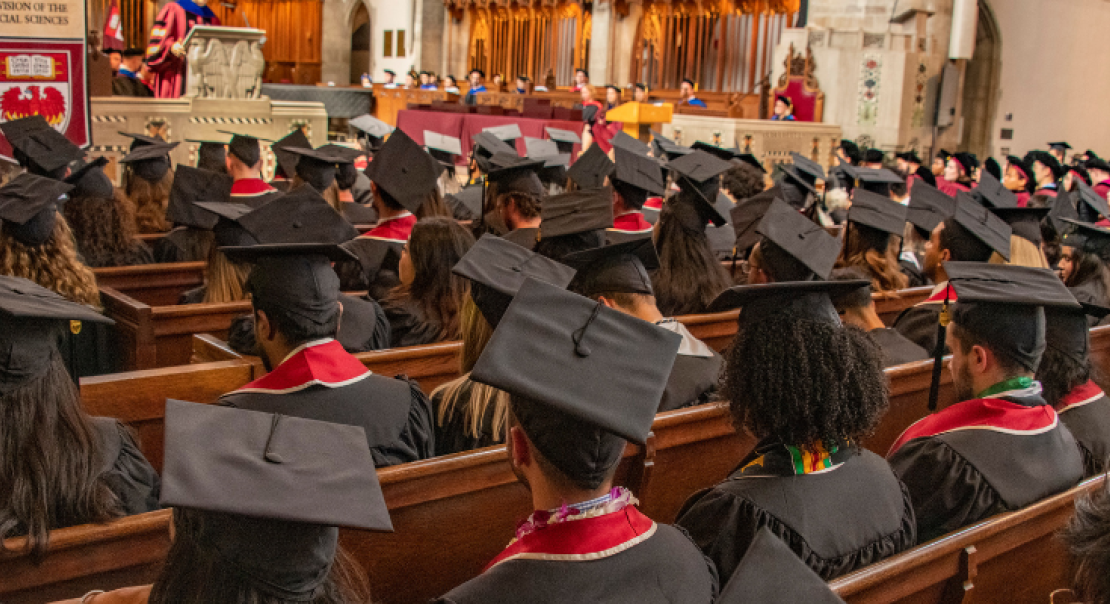
The Kenneth C. Griffin Department of Economics is one of the world's foremost economics departments, and its faculty are renowned for their seminal contributions to the field, achievements recognized with numerous Nobel Prizes, Clark Medals, and other distinctions. Students admitted to doctoral studies research, interact daily with the faculty, as well as fellow graduate students, and pursue their own interests, thus furthering their own scholarship and research, ultimately continuing to shape the discipline itself.
The Department of Economics receives 600-700 applications for an entering class of 20-25 students per year. The number of well-qualified applicants exceeds the number of offers we can make. Nevertheless, we still strongly encourage those interested in graduate economic study to apply.
Welcome incoming Ph.D. students! (alphabetical listing): Pedro Adami Oliboni; Bruno Aravena Maguida; Iris Arbogast; Dylan Baker; Rachel Coroseo Rojas; Amedeus Dsouza; Jacob Hartwig; Xun Huang; Ragini Jain; Tanvi Jindal; Sreyas Mahadevan; Saptarshi Majumdar; Ken Miyahara Coello; Meera Mody; Luke Motley; Shivani Pandey; Tyler Patterson; Santiago Perez Cardona; Henrique Rodrigues da Mota; Berkay Sagin; Stan Xie; Gianluca Yong Gonzalez; Samuel Zhao
_______________________________________________________________________
Congratulations 2022-2023 Ph.D. Graduates! 2022-2023 PhD graduates (alphabetical listing): Oguz Bayraktar • Sergei Bazylik • Andrew Choi • Neil Cholli • Levi Crews • Yusheng Fei • Agustin Gutierrez • Takuma Habu • Eyo Herstad • Sota Ichiba • Esperanza Johnson Urrutia • Joshua Ka • Daniel Kashner • Jonas Lieber • Jack Light • Jiarui Liu • Andrea Mattia • Hyejin Park • Harshil Sahai • Chun Shea • Younghun Shim • Myungkou Shin • Mateusz Stalinski • Mehrdad Tahvilian
_____________________________________________________________________________
Postdoctoral Program The Kenneth C. Griffin Department of Economics is proud to announce its first year (2023-24) of having a postdoctoral program!
Selected postdoctoral scholars in the program for 2023-24 are Harshil Sahai (PhD '23) and Esperanza Johnson Urrutia (PhD '23). Postdoctoral scholars in the program for 2024-25 are Elena Istomina and Shanon Hsuan-Ming Hsu.
STEM Eligibility The PhD program is STEM eligible for international students.
Divisional Graduate Resources
Find divisional Graduate Resources here.
The Economics PhD Program is administered by: Kathryn Falzareno Graduate Student Affairs Administrator SHFE 510 Phone: 773-702-3026 Email: [email protected]
PhD Admissions Application
This website uses cookies..
This website uses cookies to improve user experience. By using our website you consent to all cookies in accordance with our Cookie Policy.
Economics of Education

Caroline Hoxby
Explore your training options in 10 minutes Get Started
- Graduate Stories
- Partner Spotlights
- Bootcamp Prep
- Bootcamp Admissions
- University Bootcamps
- Coding Tools
- Software Engineering
- Web Development
- Data Science
- Tech Guides
- Tech Resources
- Career Advice
- Online Learning
- Internships
- Apprenticeships
- Tech Salaries
- Associate Degree
- Bachelor's Degree
- Master's Degree
- University Admissions
- Best Schools
- Certifications
- Bootcamp Financing
- Higher Ed Financing
- Scholarships
- Financial Aid
- Best Coding Bootcamps
- Best Online Bootcamps
- Best Web Design Bootcamps
- Best Data Science Bootcamps
- Best Technology Sales Bootcamps
- Best Data Analytics Bootcamps
- Best Cybersecurity Bootcamps
- Best Digital Marketing Bootcamps
- Los Angeles
- San Francisco
- Browse All Locations
- Digital Marketing
- Machine Learning
- See All Subjects
- Bootcamps 101
- Full-Stack Development
- Career Changes
- View all Career Discussions
- Mobile App Development
- Cybersecurity
- Product Management
- UX/UI Design
- What is a Coding Bootcamp?
- Are Coding Bootcamps Worth It?
- How to Choose a Coding Bootcamp
- Best Online Coding Bootcamps and Courses
- Best Free Bootcamps and Coding Training
- Coding Bootcamp vs. Community College
- Coding Bootcamp vs. Self-Learning
- Bootcamps vs. Certifications: Compared
- What Is a Coding Bootcamp Job Guarantee?
- How to Pay for Coding Bootcamp
- Ultimate Guide to Coding Bootcamp Loans
- Best Coding Bootcamp Scholarships and Grants
- Education Stipends for Coding Bootcamps
- Get Your Coding Bootcamp Sponsored by Your Employer
- GI Bill and Coding Bootcamps
- Tech Intevriews
- Our Enterprise Solution
- Connect With Us
- Publication
- Reskill America
- Partner With Us
- Resource Center
- Bachelor’s Degree
- Master’s Degree
Best Doctorates in Economics: Top PhD Programs, Career Paths, and Salaries
If you’re a graduate student and interested in pursuing an advanced study in the field of economics, you should start researching the best PhDs in Economics. By enrolling in an economics PhD program, you’ll be getting an in-depth education on past and current economic trends.
In this article, we’ll try to help you choose the right PhD in Economics by going over some of the best programs in the United States. We’ll also cover some of the highest-paying economics jobs on the market and provide an overview of the PhD in economics salary possibilities.
Find your bootcamp match
What is a phd in economics.
A PhD in Economics degree is an advanced doctoral degree program that studies the distribution and consumption of goods and services. Economics classes teach students to analyze small-scale and global-scale economic factors to make predictions for future markets.
The main goal of economics departments in PhD programs is to teach students how to help different institutions improve and optimize their economic actions. Through a mix of teaching, research, and a heavy course load, economics grad students will perfect their quantitative skills and learn to make decisions that increase the profitability of the organizations they work for.
How to Get Into an Economics PhD Program: Admission Requirements
The admission requirements to get into an economics PhD program include a bachelor’s degree in a related field and a minimum 3.0 GPA. Other admission requirements can include GRE exam scores, letters of recommendation, a statement of purpose, and a resume. Admissions counselors will look at a student’s comprehensive experience before grad school.
Different schools have other specific admission requirements for their economics PhD programs, but all international and English as a second language-speaking (ESL) students will have to submit proof of English proficiency in the form of Test of English as a Second Language (TOEFL) exam scores.
PhD in Economics Admission Requirements
- Bachelor’s or master’s degree in a related field
- Minimum 3.0 GPA
- GRE test scores (optional for most schools)
- Two to three letters of recommendation
- Proof of English proficiency (for ESL and international students)
- Statement of purpose
- Previous knowledge in math-intensive subjects, such as economic theory, statistics, mathematics, differential and integral calculus, and linear algebra
Economics PhD Acceptance Rates: How Hard Is It to Get Into a PhD Program in Economics?
It can be very hard to get into economics PhD programs. Economics PhD acceptance rates vary between 2.4 and 7.4 percent. At Johns Hopkins University, for example, only 12 students are selected to enroll in the Economics PhD program out of more than 500 applications.

How to Get Into the Best Universities
[query_class_embed] how-to-get-into-*school
Best PhDs in Economics: In Brief
Best universities for economics phds: where to get a phd in economics.
The best universities for PhD economics programs include Arizona State University, John Hopkins University, Syracuse University, and Drexel University. These schools will adequately equip you with the economic knowledge and skills needed to ensure you are ready for a well-paying job in the economics career path of your dreams. Continue reading for all you need to know to prepare for grad school at one of the top Phd in Economics degree programs.
Arizona State University is a public research university founded in 1886. It is considered one of the best institutions for superior education. ASU offers more than 400 graduate degree programs led by experts and has been ranked as the nation’s most innovative university by US News & World Report .
PhD in Economics
This economics PhD program provides training in microeconomic and macroeconomic theory, applied economics, and econometrics. Classrooms are relatively small, with about 45 graduate students, to facilitate mentoring and provide greater faculty attention within the department of economics. The program prepares students for teaching and research positions in the field of economics.
PhD in Economics Overview
- Program Length: 5 years
- Acceptance Rate: Not stated
- Tuition: $ 858/credit (in state); $1,361/credit (out of state)
- PhD Funding Opportunities: National Science Foundation Graduate Research Fellowship, graduate teaching assistantships
- Bachelor's or master's degree from a regionally accredited institution
- Minimum cumulative GPA of 3.0
- Graduate admission application and application fee
- Official transcripts
- Three letters of recommendation
Colorado State University was founded in 1870. It is a public land-grant research university and is considered the flagship university of the Colorado State University System. It offers several programs and certificates across many fields and has over 7,000 enrolled graduate students.
This economics doctoral program offers meticulous training and teaches research methods in the many different areas of economics. These math intensive classes include microeconomic theory, macroeconomic theory, and econometrics. This econ program requires a minimum of 72 credits and allows students to focus on different areas like environmental, international, political, Keynesian, feminist, or regional economics.
- Tuition: $601.90/credit (in state); $1,475.80/credit (out of state)
- PhD Funding Opportunities: Graduate assistantships, scholarships, fellowships, internships, grants
- Online application and application fee
- Official transcripts of all collegiate work completed post-high school
- Letters of recommendation
Drexel University was founded in 1891. It is a private research university with over 8,900 enrolled graduate students. Their co-op education program sets this university apart from others, offering students the opportunity to get paid and gain real-world experience prior to graduating.
This PhD in Economics teaches a set of core courses including microeconomics, macroeconomics, and econometrics. Students are then required to specialize and demonstrate math skills in industrial organization, international economics, or macroeconomics. This PhD is an official STEM Designated Degree Program. Each class is composed of three to six doctoral students to optimize and facilitate interactions between students and faculty.
- Tuition: $1,342/credit
- PhD Funding Opportunities: Graduate assistantships
- GRE scores from the past five years
- Personal statement
- Two letters of recommendation
Johns Hopkins University is a world-renowned private research university. It was founded in 1876 and is now organized into 10 campuses in Maryland and Washington, with international divisions in Italy and China. The university has over 22,000 graduate students enrolled across its social sciences, engineering, arts, and business schools.
This economics program is led by expert faculty and trains students in applied microeconomics and macroeconomics, economic theory, and econometrics. Students will receive one-on-one attention from faculty, allowing them to conduct better research and strengthen the complex analysis and quantitative skills necessary in the field of econ.
- Program Length: 5-6 years
- Acceptance Rate: 2.4%
- Tuition: $58,720/year
- PhD Funding Opportunities: Departmental fellowship (1st year), teaching or research assistantships (2nd to 5th years), Carl Christ Fellowship, Kelly Miller Fellowship, tuition fees funded by the department for enrolled students
- Unofficial transcripts from all previous colleges and universities
- GRE scores (quantitative scores of 160 or above)
- Minimum of two letters of recommendation
Kansas State University was founded in 1863 as the first public institution of higher education in Kansas. KSU is a public land-grant research university and has over 4,500 enrolled graduate students across 73 master's and 43 doctoral degree programs.
This PhD Economics program teaches students about the latest advances in econometrics, economic theory, and computation. The program requires the completion of a minimum of 90 credits, of which 30 are designated to researching and writing a high-quality dissertation.
- Tuition and Fees: $6,282/year (in state); $12,746/year (out of state)
- PhD Funding Opportunities: Teaching assistantships, the Wayne Nafziger Graduate Scholarship, the Lloyd and Sally Thomas Graduate Scholarship, and Edward Bagley Graduate Scholarship; tuition fees funded by the department for enrolled students
- Academic transcripts of all undergraduate and graduate coursework from each institution attended
- Short statement of objectives for graduate study
- GRE scores from the past five years (optional but encouraged)
Oregon State University ’s roots can be traced back to 1856 as a public land-grant research university that was founded as a primary and preparatory community school. Today, the university is the largest in Oregon. Oregon State is particularly renowned for its programs in earth, marine, and biological sciences and has over 5,668 enrolled graduate students.
PhD in Applied Economics
The 108-credit Applied Economics PhD degree program teaches students about economic theory, econometrics, development economics, and other quantitative methods. Grad school students of this program will gain the intellectual autonomy needed to examine real-world problems and apply relevant solutions regarding policy, education, trade, and the environment.
PhD in Applied Economics Overview
- Program Length: 4-5 years
- Acceptance Rate: 6.7%
- Tuition: $498/credit (in state); $1,011/credit (out of state)
- PhD Funding Opportunities: Graduate assistantship
PhD in Applied Economics Admission Requirements
- Academic records from each institution attended
- Letters of reference
- Statement of objectives
Syracuse University is a private research university founded in 1831 with over 6,800 enrolled graduate students. Syracuse is ranked 59th on US News & World Report’s list of best national universities and features famous alum President Joe Biden.
The PhD in Economics program at Syracuse University is a research-oriented degree that requires the completion of 72 credits. The program teaches students about mathematical economics, microeconomic theory, macroeconomic theory, and econometrics. Students will specialize in a primary field in labor, international, public, urban economics, or econometrics.
- Acceptance Rate: N/A
- Tuition: $32,436/year
- PhD Funding Opportunities: University Fellowships, graduate assistantships, Melvin Eggers Graduate Economics Scholarship for Doctoral Students, David Greytak Fellowship Fund
- Transcripts from all collegiate and post-collegiate work
- Three letters of recommendation
University of Maryland (UMD) at College Park was founded in 1856 and is the flagship campus of the University System of Maryland. UMD is a public, land-grant research university with 10,500 enrolled graduate students in over 230 graduate degree programs.
PhD in Economics (ECON)
This econ PhD program offers a wide range of specializations to students, including advanced macroeconomics or microeconomics, behavioral and experimental economics, econometrics, economic history, international trade, and public economics. Students who enroll directly after they finish their bachelor’s degree are also able to obtain a Master of Arts degree simultaneously.
PhD in Economics (ECON) Overview
- Acceptance Rate: 4.1%
- Tuition: $1,269/semester (in state); $2,496/semester (out of state)
- PhD Funding Opportunities: Graduate assistantships, Fellowship in Support of Diversity and Inclusion
PhD in Economics (ECON) Admission Requirements
- Transcripts from all institutions attended after high school
- Description of research and work experience
- GRE exam scores (optional)
University of Utah was established in 1850 as a public research university and is now considered the flagship institution of the Utah System of Higher Education. It currently has over 8,400 enrolled graduate students and offers several programs with financial assistance, academic opportunities, and postdoctoral fellows.

"Career Karma entered my life when I needed it most and quickly helped me match with a bootcamp. Two months after graduating, I found my dream job that aligned with my values and goals in life!"
Venus, Software Engineer at Rockbot
This economics PhD program allows students to explore many topics, including economic theory, post-Keynesian macroeconomics, Marxian economics, the economics of gender, labor market institutions, and intensive math classes. The program focuses particularly on themes of inequality, globalization, and sustainability.
- Acceptance Rate: 7.4%
- Tuition and Fees: $1,271.79/credit (in state); $4,517.11/credit (out of state)
- PhD Funding Opportunities: Graduate assistantships (research and teaching), fellowships, scholarships
- Completion of intermediate microeconomic and macroeconomic theory prerequisite courses
- Three academic reference letters
- Brief statement of personal academic goals
West Virginia University was founded in 1867 as a public land-grant research university. Today, the university enrolls over 5,700 graduate students in more than 350 programs throughout 14 colleges and high-quality schools.
This 45-credit PhD program trains students to conduct original research, produce publishable articles, analyze real-world problems from economists and policymakers, and effectively communicate their results. Doctorate students must choose a specialization in health, international, monetary, public, regional, or urban economics. Classes in economics have a small number of students to facilitate and encourage interaction between students and faculty.
- Program Length: 4 years
- Tuition and Fees: $899/credit (in state); $2,053/credit (out of state)
- PhD Funding Opportunities: Graduate assistantships, Arlen G. and Louise Stone Swiger Doctoral Fellowship, W.E.B. Du Bois Fellowship, Provost Graduate Fellowship
- Minimum GRE score of, 300
- Completion of statistics, intermediate micro and macro theory, and calculus prerequisite courses
Can You Get a PhD in Economics Online?
Yes, you can get a PhD in economics online. Liberty University currently offers an online PhD in Public Policy with a concentration in Economic Policy. This program focuses on teaching students how to shape economic policy across legislation, communications, politics, education, and international relations. Grad school students can complete this online program in three years.
Best Online PhD Programs in Economics
How long does it take to get a phd in economics.
It takes five years on average to get a PhD in Economics. The first two years are usually spent completing core classes in economics, and by the third year, students prepare for exams in their specialization field of choice. The final two years are for research and writing a dissertation.
Some students are able to complete their PhD program in less time. Others take up to seven years to finish their degrees, especially if they don’t already have a master’s degree in the field, or are taking courses part-time.
Is a PhD in Economics Hard?
Yes, a PhD in Economics is a hard degree to obtain. However, at this level of education, regardless of the area of study you choose, all programs are hard to complete. Doctoral programs are intended for students who wish to become true experts in their field of choice.
Economics PhD programs are hard because extensive research and practical capabilities are required of candidates. Through a heavy course load, econ grad students are expected to work hard to develop their skills to the maximum and create publishable, high-quality work.
How Much Does It Cost to Get a PhD in Economics?
It costs an average of $19,314 per year to get a PhD in Economics , according to the National Center for Education Statistics. This value is an average of the graduate tuition required in all public and private institutions between 2018 and 2019. Tuition rates will vary by school, and private universities are often more expensive than public institutions.
How to Pay for a PhD in Economics: PhD Funding Options
PhD funding options that students can use to pay for a PhD in Economics include research and teaching assistantships, and many different fellowships and scholarships. These can either be provided directly by the university or by independent institutions and organizations.
Some of these include the Provost Graduate Fellowship, the Melvin Eggers Graduate Economics Scholarship for Doctoral Students, and the National Science Foundation Graduate Research Fellowship Program.
Best Online Master’s Degrees
[query_class_embed] online-*subject-masters-degrees
What Is the Difference Between an Economics Master’s Degree and PhD?
The main difference between an economics master’s degree and a PhD is that master’s degrees are more career-oriented, while PhDs are focused on research. Since many doctorate students wish to pursue academic careers and teach in high-quality schools, they opt for a PhD program that allows them to acquire expert-level knowledge through research and assistant teaching.
Other differences between these two programs include funding options for payment, as master’s degrees don’t have as many funding options as PhD programs do, as well as the time of completion and the difference in salary between economics master’s and PhD graduates.
Master’s vs PhD in Economics Job Outlook
Employment for both economics master’s and PhD graduates is expected to grow in the next 10 years. However, the growth percentage is much higher for certain economics jobs for those with a doctoral degree. For example, employment for budget analysts, a position that requires only a Master’s Degree in Economics, is projected to grow five percent from 2020 to 2030, which is slower than the average growth for all occupations.
On the other hand, employment for postsecondary teachers, who typically need to have a PhD in Economics, is expected to grow 12 percent in the next 10 years .
Difference in Salary for Economics Master’s vs PhD
Considering the differences mentioned above, there’s a significant difference in average salaries for economics master’s and PhD graduates. While a budget analyst makes around $84,240 on average per year, a postsecondary teacher makes $124,090 on average per year.
According to PayScale, the average salary of someone with a Master’s Degree in Economics is $82,000 per year , whereas the average salary of someone with a PhD in Economics is $110,000 per year .
Related Economics Degrees
[query_class_embed] https://careerkarma.com/blog/best-associate-degrees-in-economics/ https://careerkarma.com/blog/economics-bachelors-degrees/ https://careerkarma.com/blog/economics-masters-degrees/
Why You Should Get a PhD in Economics
You should get a PhD in Economics because it will allow you to learn many valuable quantitative and analytical skills in the field, improve how you communicate with peers and non-experts alike, learn from a wide variety of specializations, and put you on track for a career in research and academics.
Reasons for Getting a PhD in Economics
- Wide range of specializations. A PhD in Economics allows you to specialize in an area that interests you most, such as financial, labor, international, political, business, feminist, Keynesian, environmental, or development economics.
- Improve communication skills. Throughout your economics PhD program, you’ll be required to publish high-quality articles for peer review. This means that you’ll also be expected to learn how to communicate your findings to the common layman.
- Learn many relevant skills. Econ students learn skills that will allow them to work for several institutions. They’re able to evaluate and calculate risk, make predictions, develop and use mathematical models, and deeply understand market dynamics.
- Work in academia. Most PhD graduates desire to become professors themselves. A PhD in Economics allows students to work for all kinds of superior institutions and have a fulfilling career in research and academia.
Getting a PhD in Economics: Economics PhD Coursework

Getting a PhD in Economics begins with core economics PhD coursework. For most programs, these courses include micro and macroeconomics, econometrics, mathematics for economists, and research design and methodology.
Microeconomics
A microeconomics course teaches decision-making when it comes to allocating resources of production, exchange, and consumption. Students learn about consumer and producer theory, general equilibrium theory, game theory, and other key applied microeconomic topics.
Macroeconomics
Macroeconomics is the area of economics that studies the economy as a whole. It accounts for the total goods and services provided, economic growth, and total income and consumption. In this course, students learn about the different macroeconomic models and current trends in macroeconomic thought.
Econometrics
In an econometrics course, students learn about probability and statistics, random variables, and hypothesis-testing procedures. Students will also be able to apply mathematical formulations to create complex economic models.
Mathematics for Economists
This core course is important to review the mathematical techniques required in economics. Students consolidate their knowledge in calculus, matrixes, algebra, differential equations, and set theory.
Research Design and Methodology
This introductory course is fundamental to guide students through conducting relevant research in economics literature for their dissertation, article publications, seminars, and any other papers they’ll need to prepare.
Best Master’s Degrees
[query_class_embed] *subject-masters-degrees
How to Get a PhD in Economics: Doctoral Program Requirements
If you’re wondering how to get a PhD in Economics, the answer is pretty straightforward. To successfully complete an economics PhD program, students will have to complete all of the doctoral program requirements. These include successfully concluding core economics classes, establishing a program of study, passing the qualifying exam and candidacy examination, and defending a final dissertation.
Every PhD student will have to take a common set of core courses during their first year. These courses in micro and macroeconomics, econometrics, and mathematics provide students with basic training for conducting research in their field at advanced levels.
At the end of the first year, students will take their first-year exam to prove their competence in the core course and readiness to continue with the program. Passing these exams will allow students to choose their specialization courses for the second year.
Just before the beginning of the second year, students will work with an advisor to help them figure out the specialization courses best for them. They will also facilitate the process of finding a permanent advisor and creating a program of study for the rest of the degree program.
Candidacy examinations, or field course exams, are tests that prove a student’s knowledge in the specialized fields in which they wish to pursue their dissertation research. Upon passing these examinations, students are then recognized as PhD candidates.
By the end of the fifth year, most students have already completed their research and are ready to present and defend their theses. Students defend their dissertation in a final oral examination. Upon passing the defense, students must submit a final copy of their dissertation.
Potential Careers With an Economics Degree
[query_class_embed] how-to-become-a-*profession
PhD in Economics Salary and Job Outlook
Getting a PhD in Economics will grant you career stability and financial security. Career prospects in the economics field are great, as employment in these jobs is projected to grow faster than average. Continue reading for a list of some of the best PhD in Economics jobs available to graduates and an overview of their annual salaries.
What Can You Do With a PhD in Economics?
With a PhD in Economics, you can apply to many high-paying jobs in the field. These jobs can include financial manager, postsecondary economics teacher, economist, personal financial advisor, or even urban and regional planner roles.
Best Jobs with a PhD in Economics
- Financial Manager
- Postsecondary Economics Teacher
- Personal Financial Advisor
- Urban and Regional Planner
What Is the Average Salary for a PhD in Economics?
The average salary for someone with a PhD in Economics is $110,000 per year , according to PayScale. This value varies depending on the career path you choose, the company you work for, or even the industry you base your work in.
Highest-Paying Economics Jobs for PhD Grads
Best economics jobs with a doctorate.
In this section, we’ll cover the best economics jobs you can get with a doctoral degree. They include financial managers, postsecondary teachers, and economists. Other high-paying jobs include personal financial advisors and urban and regional planners.
Financial managers are responsible for the financial standing of a company or organization. They coordinate accounting and investing, create financial reports, and develop long-term financial goals for their company. They must have knowledge of the tax laws and regulations specific to their industry.
- Salary with an Economics PhD: $153,460
- Job Outlook: 17% job growth from 2020 to 2030
- Number of Jobs: 681,700
- Highest-Paying States: New York, Delaware, and New Jersey
Many economics PhD students are interested in teaching in postsecondary academic institutions. After being hired, these professors are placed in the school’s department of economics where they can conduct research and teach one or more courses in the field.
- Salary with an Economics PhD: $124,090
- Job Outlook: 12% job growth from 2020 to 2030
- Number of Jobs: 1,276,900
- Highest-Paying States: New Hampshire, Montana, and California
Economists apply their knowledge and skills in economic analysis within a great variety of fields. They study the cost of products, examine employment, taxes, and inflation levels, and analyze economic history trends to make predictions for the future.
- Salary with an Economics PhD: $120,830
- Job Outlook: 13% job growth from 2020 to 2030
- Number of Jobs: 18,600
- Highest-Paying States: New York, Washington DC, and California
Personal financial advisors advise clients on investments, insurance, mortgages, taxes, and other areas related to financial investment and management. They work to assess a client’s needs and help them make the best financial decisions for their future.
- Salary with an Economics PhD: $119,960
- Job Outlook: 5% job growth from 2020 to 2030
- Number of Jobs: 275,200
- Highest-Paying States: New York, Washington DC, and Washington
Urban and regional planners gather and analyze information regarding economic, population, and environmental factors to advise developers on their plans to use land. Using their analytical and data skills, they eventually have the final say on whether a land project is feasible.
- Salary with an Economics PhD: $81,310
- Job Outlook: 7% job growth from 2020 to 2030
- Number of Jobs: 39,100
- Highest-Paying States: Washington DC, California, and New York
Is a PhD in Economics Worth It?
Yes, a PhD in Economics is worth it. Getting an economics PhD is a great way to gain valuable skills for the econ job market, work on your overall communication, and guarantee financial security and stability over the course of your career.
Economics PhD graduates can choose between conducting research and teaching in superior institutions, prestigious government positions, and continuous work at some of the highest-paying private institutions.
Additional Reading About Economics
[query_class_embed] https://careerkarma.com/blog/online-college-economics-courses/ https://careerkarma.com/blog/best-companies-for-economists/ https://careerkarma.com/blog/best-online-economics-masters-degrees/
PhD in Economics FAQ
Some of the top companies that are hiring economists in 2022 include RAND, the Federal Reserve Bank of New York, and the World Bank. Fannie Mae, the IMF, and Amazon are also top companies looking for economists.
Yes, you are expected to teach or somehow be involved in classroom experiences during your PhD program. Most students receive financial funding through teaching assistantships. These are viewed as an important component of the PhD college career.
You’ll need to have some kind of mathematics background to be admitted to an economics PhD program. All candidates must have taken intensive math classes and need proven math ability in calculus, linear algebra, and differential equations.
No, you don’t need an econ master’s degree to enroll in an economics PhD. However, only a small number of applicants are accepted into these programs and a master’s degree could be considered a competitive edge.
About us: Career Karma is a platform designed to help job seekers find, research, and connect with job training programs to advance their careers. Learn about the CK publication .
What's Next?
Get matched with top bootcamps
Ask a question to our community, take our careers quiz.

Leave a Reply Cancel reply
Your email address will not be published. Required fields are marked *

Economics Ph.D. Tuition
Tuition cost calculator and funding.
Tuition for the doctoral degree in Economics will vary depending on the number of courses needed and the background of the student. Here are several steps you can follow to understand the cost of the program and the funding opportunities available.
- Learn more about tuition and fees at the University of Nevada, Reno.
- The Office of Financial Aid & Scholarships is available to meet with any students needing information on federal- and state-based financial aid programs.
- When you apply to the program, you are simultaneously considered for available assistantships. No additional submissions are required.
- For additional information on funding for graduate students, learn what funding is available through the Graduate School as well as external funding opportunities .
International Students
- View a sample table of the fees for international graduate students.
- For information on funding for international students, please consult the Office of International Students and Scholars .
Economics of Education (PhD)
This course is a PhD level introduction to the economics of education. It introduces microeconomic theories of returns to education and frontier econometric methods that are employed in investigating issues in education. The course pays attention to causal inference and predictions about the impact of education policies. Primary focus is on early childhood and K-12 education in the US. Must be a PhD student to enroll.
Recent News
Harris voices: katie savage, cla'19, on learning to look around and be in community, harris policy students see the real-life impact of tax policy while serving the community, harris and the stone center host panel on race, sports, and labor, upcoming events, sdg challenge pre-college program information session (in chinese), decide your uchicago dpss track: academic vs. professional track, pku-uchicago summer school general webinar.
- How to Apply
- Why Public Policy
- Financial Aid
- Academic Advising
- Find a Job or Internship
- Disability Resources
- Room Reservations
- Academic Calendar
- Faculty Resources
- Faculty Access
- Human Resources
- News and Events
- Alumni Directory
- Get Involved
Search NYU Steinhardt

Funding Packages for Full-Time PhD Students
If you are accepted as a full-time NYU Steinhardt PhD student, you are eligible for our generous funding package, which includes a stipend, scholarship, and healthcare coverage. Information is below and on our doctoral funding website.
Funding Opportunities
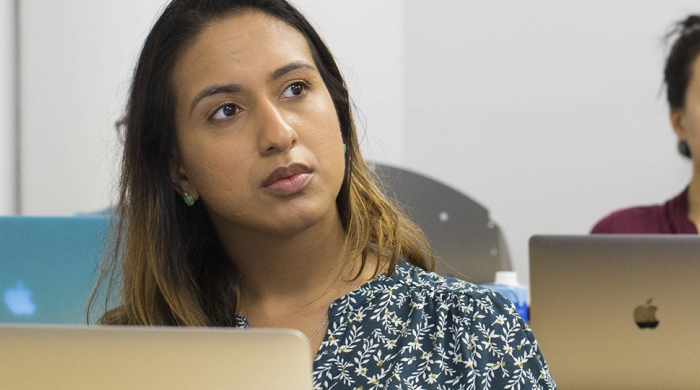
The Steinhardt Fellowship Program
The standard Steinhardt Fellowship package includes an annual stipend, tuition remission for required course work, and student health insurance through your fifth year. The fellowship is reserved for full-time doctoral students. The 2024-2025 stipend is $33,867. Complete details are provided with each offer of admission.

Research Assistantships
Some doctoral students may be appointed to a Research Assistantship. Research Assistants are funded by external grants and work with a principal investigator on a funded research project. Unlike Steinhardt Fellows, Research Assistants agree to work 20 hours per week on an ongoing research project, typically with a team of faculty and other students. Research Assistants may not perform additional work assignments such as teaching or grading.
For the duration of the assistantship, Research Assistants receive funding that includes a stipend, tuition remission for required course work, and student health insurance.
Other Expenses to Consider
Beyond what is covered by your Steinhardt Fellowship or Research Assistantship, you may have additional expenses that you should keep in mind as you plan your budget. These may include, but are not limited to:
- Late registration fees
- Tuition for undergraduate courses
- Tuition for graduate courses not applicable to your degree
- Tuition for courses in excess of the total point requirement for your degree
- Tuition for courses completed after the end of the fifth year
- Tuition for courses and fees used to maintain official enrollment for study leading to a degree after the end of the fifth year; see doctoral student policies for more information
- Student health insurance for students beyond the fifth year (note that students who are employed by NYU, such as Research Assistants or Adjunct Instructors, may receive health insurance as an employee benefit)
Graduate Education
Office of graduate and postdoctoral education, program contact.
Whitney Buser School of Economics Ivan Allen College Georgia Institute of Technology 221 Bobby Dodd Way Atlanta, GA 30332-0615
Application Deadlines
- BS/MS: May 15
- M.S.: April 1
- Ph.D.: February 1
Admittance Terms
Degree programs.
- Master's, Economics
- PhD, Economics
Areas of Research
Standardized tests.
IELTS Academic Requirements
- Have scores sent to Georgia Institute of Technology, "Graduate"
- ≥7.0 (minimum band score for Reading, Listening, and Speaking is 6.5; minimum band score for Writing is 5.5)
TOEFL Requirements
- Institute Code: 5248
- Department Code: 84
- Internet-based: 90, with minimum section scores of 19
GRE Requirements
- Institute Code: R5248
- Department Code: 4301
- General Test: Required
Application Requirements
- Three Letters of Recommendation
Program Costs
- Go to " View Tuition Costs by Semester ," and select the semester you plan to start. Graduate-level programs are divided into sections: Graduate Rates–Atlanta Campus, Study Abroad, Specialty Graduate Programs, Executive Education Programs
- Find the degree and program you are interested in and click to access the program's tuition and fees by credit hour PDF.
- In the first column, determine the number of hours (or credits) you intend to take for your first semester.
- Determine if you will pay in-state or out-of-state tuition. Learn more about the difference between in-state and out-of-state . For example, if you are an in-state resident and planning to take six credits for the Master of Architecture degree, the tuition cost will be $4,518.
- The middle section of the document lists all mandatory Institute fees. To see your total tuition plus mandatory fees, refer to the last two columns of the PDF.
Program Links
The Office of Graduate Education has prepared application instructions to help you navigate through the admissions process. View the instructions to begin your graduate education.

LERNER BUSINESS & ECONOMICS
- Economic Education (Ph.D.)
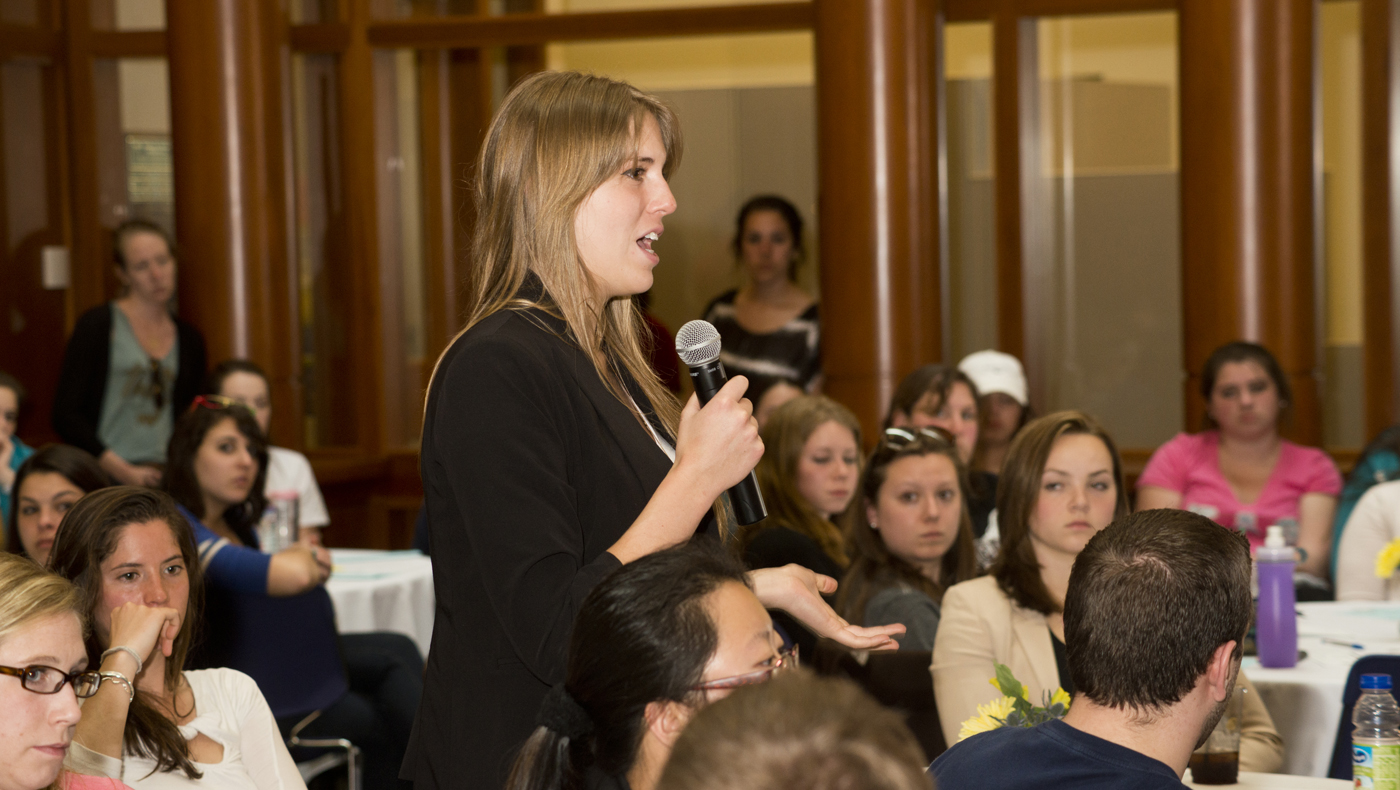
By Peter Coy
Opinion Writer
I offer to pay you $200 in one year if you give me $190 today. Good deal or bad deal?
It’s the kind of math problem you might encounter in real life, as opposed to, say, whether the cosecant of a 30-degree angle is 1 or 2. You can imagine students perking up and paying attention when they realize that they need to know algebra to avoid being cheated on a loan.
Math and personal finance make a perfect fit. Students grasp concepts such as exponential growth and regression to the mean much better when they see how those subjects apply to their daily financial lives.
A survey in 2022 funded by the Bill and Melinda Gates Foundation found that 61 percent of parents of students said math education should be “relevant to the real world” but that only 21 percent said it was.
The drive for relevance goes beyond K-12 education. Some of America’s top universities are incorporating personal finance into their curriculums.
Harvard has a personal finance course in the economics department that’s taught by John Campbell, a past president of the American Finance Association. “Traditionally personal finance was regarded as a very sort of hands-on skill that you might teach to people who were going to a technical high school,” he told me. “There is, I would say, a modern movement to reconceive of personal finance as a subject with actually a lot more intellectual content.”
Last year Stanford hired Annamaria Lusardi, an expert in financial literacy, from George Washington University. In October she and other faculty members held a conference on teaching personal finance that included presenters from Dartmouth College, Loyola University in New Orleans, Pennsylvania State University, the University of Pennsylvania’s Wharton School and the Yale School of Management.
The question I opened this newsletter with comes from a finance-infused high school math curriculum, FiCycle, that was developed by a New York-based nonprofit, the Financial Life Cycle Education Corp.
It’s a good example in that answering it takes real algebra, the kind that makes a lot of students’ eyes glaze over. To know whether lending me $190 makes sense, you have to know the best alternative use of your money over the coming year. Let’s say it’s a savings account that pays 2 percent in annual interest.
You need to calculate the value to you today of receiving $200 a year from now. So you divide $200 by 1.02, with the 0.02 representing 2 percent interest. The answer is $196.08. That’s more than $190, so you should take me up on my offer. (You can ignore inflation because it affects your two options equally.)
In most high schools, personal finance classes are light on math, and math classes are light on personal finance. The FiCycle curriculum has plenty of each.
“The personal finance component is incredibly motivating for our high school students,” Philip Dituri, the director of education at Financial Life Cycle Education, who has a doctorate in math education, told me.
Dituri recalled one student who said she loved the FiCycle curriculum but hated algebra. “I thought, ‘Do I tell her it’s the exact same math?’”
Financial Life Cycle Education was founded in 2014 by Andrew Davidson, who runs a company that applies analytical tools to investment management. He has a bachelor’s degree in math and physics and an M.B.A. in finance.
Davidson told me that he kept calculus out of the curriculum to make it accessible to a wide range of students. “We think our course works for non-STEM students” but also for students in STEM disciplines such as finance, accounting, insurance and investment management, he said.
There is a national standard for personal finance education that was put together by the Council for Economic Education and the Jump$tart Coalition for Personal Financial Literacy. It emphasizes how to manage one’s finances. FiCycle focuses more on the underlying concepts. It’s about “how and why individuals and households transfer consumption over time,” Financial Life Cycle Education says .
I don’t want to put too much emphasis on FiCycle because it’s still small. Davidson said it’s being used in about 70 schools in about 20 states. The important thing is the idea that it’s promoting, which is that students learn math better through personal finance and personal finance better through math.
At Harvard, Campbell said, about a quarter of his students are the first in their families to attend college. “They want to bring expertise back to their families,” he said. “They’re some of the best students in the course because they’re interested in everything.”
I’ll have more to say in a future newsletter about other ways to promote sound personal finance, especially among disadvantaged populations.
Outlook: Carl Weinberg
Inflation in the eurozone currency area hasn’t fallen as quickly as was expected, making an interest-rate cut by the European Central Bank this spring less likely, Carl Weinberg, the chief economist of High Frequency Economics, wrote in a note to clients on Friday. He wrote that he nevertheless expects the bank’s governing council to make a “dovish pivot” in its comments after its meeting this Thursday.
Quote of the Day
“It ought to be remembered that there is nothing more difficult to take in hand, more perilous to conduct or more uncertain in its success than to take the lead in the introduction of a new order of things.”
— Niccolò Machiavelli, “The Prince” (1532)
Peter Coy has covered business for more than 40 years. Email him at [email protected] or follow him on Twitter. @ petercoy

IMAGES
VIDEO
COMMENTS
by Lisa Marlin January 2, 2024 in Majors & Careers, Online Grad School 0 Economists have excellent job prospects in today's labor market. With a doctorate in economics from a reputed university and strong academic record, you'll find many well-paid job opportunities in academia or policy.
135 units of full-tuition residency are required for PhD students. After that, a student should have completed all course work and must request Terminal Graduate Registration (TGR) status. Department degree requirements and student checklist 1. Core Course requirement
Teachers College, Columbia University, is the first and largest graduate school of education in the United States, and also perennially ranked among the nation's best. ... Economics and Education PhD; Doctor of Philosophy in Economics and Education. Admissions Information. Displaying requirements for the Spring 2024, Summer 2024, and Fall 2024 ...
Meet our students Our PhD graduates go on to teach in leading economics departments, business schools, and schools of public policy, or pursue influential careers with organizations and businesses around the world. See where our grads go
The Ph.D. Program in the Department of Economics at Harvard is addressed to students of high promise who wish to prepare themselves in teaching and research in academia or for responsible positions in government, research organizations, or business enterprises. Students are expected to devote themselves full-time to their programs of study.
The PhD program is offered primarily on a full-time basis, and students are expected to complete the degree in five to six years. Occasionally, the department will admit highly qualified part-time doctoral students. View detailed year-by-year timeline of program rules and requirements. Degree Along the Way Options
The Georgetown University Economics Ph.D. program is a full-time program designed for students who seek research careers at the forefront of economic science. The Ph.D. program provides an excellent training environment for future scholars.
Students in our program generally complete their Ph.D. in 5 or 6 years. Admission to the Ph.D. program is highly selective. We receive approximately 1,000 applications each year for an incoming class of roughly 25 students.
The Department of Economics awards financial aid in the form of full tuition, yearly health insurance and a fellowship or service stipend to all of our PhD students up to the conclusion of the fifth year in the program. ... Tuition. PhD students in good standing will receive a Graduate Scholarship for the full tuition for as long as they are in ...
Graduate The doctoral program in Economics at Harvard University is one of the leading programs in the world. Supported by a diverse group of faculty who are top researchers in their fields and fueled by a vast array of resources, the PhD program is structured to train and nurture students to become leading economists in academia, government agencies, the technology industry, finance and ...
216. Total Units. 420. 1. This requirement must be satisfied in the first three terms of the program. The requirements can be met by earning a grade of B or better in the class or by passing a waiver exam. 2. 14.382 Econometrics, 14.384 Time Series Analysis, and 14.385 Nonlinear Econometric Analysis are each counted as two half-term courses.
The PhD in Economics is a small and focused program, with students concentrating in one of two areas of specialization: Industrial Organization, Competition Policy, and Regulatory Economics and Labor Economics. The program is applied in nature and is designed for students who are considering work in the government and private sectors as well as ...
Cost of Attendance When making your financial plans, it is necessary to consider tuition and fees as well as living expenses in estimating the overall cost of attendance (COA). The following is the estimated cost of attendance for the 2023-2024 academic year. Expand all Collapse all Tuition for Doctoral Programs Tuition for Master's Programs Fees
The Kenneth C. Griffin Department of Economics is proud to announce its first year (2023-24) of having a postdoctoral program! Selected postdoctoral scholars in the program for 2023-24 are Harshil Sahai (PhD '23) and Esperanza Johnson Urrutia (PhD '23). Postdoctoral scholars in the program for 2024-25 are Elena Istomina and Shanon Hsuan-Ming ...
Landau Economics Building 579 Jane Stanford Way Stanford, CA 94305 Phone: 650-725-3266 econ [at] stanford.edu (econ[at]stanford[dot]edu) Connect with us on Twitter Campus Map
This value is an average of the graduate tuition required in all public and private institutions between 2018 and 2019. Tuition rates will vary by school, and private universities are often more expensive than public institutions. How to Pay for a PhD in Economics: PhD Funding Options
Tuition for the doctoral degree in Economics will vary depending on the number of courses needed and the background of the student. Here are several steps you can follow to understand the cost of the program and the funding opportunities available. Learn more about tuition and fees at the University of Nevada, Reno. The Office of Financial Aid ...
Overview The doctoral program in economics gives students exposure to the distinct fields of Austrian economics, experimental economics, and public choice.
Economics of Education (PhD) Atila Abdulkadiroglu. Wednesday. 9:00am-11:50am. Syllabus. This course is a PhD level introduction to the economics of education. It introduces microeconomic theories of returns to education and frontier econometric methods that are employed in investigating issues in education. The course pays attention to causal ...
Michigan is a full-service department, offering fields in virtually all specializations of modern economics including microeconomic theory, econometrics, macroeconomics, finance, history, international economics, development, public finance, industrial organization, labor, and natural resources.
The Steinhardt Fellowship Program. The standard Steinhardt Fellowship package includes an annual stipend, tuition remission for required course work, and student health insurance through your fifth year. The fellowship is reserved for full-time doctoral students. The 2024-2025 stipend is $33,867. Complete details are provided with each offer of ...
PhD, Economics Areas of Research Energy Health Managerial Standardized Tests IELTS Academic Requirements Have scores sent to Georgia Institute of Technology, "Graduate" Minimum Score Required: ≥7.0 (minimum band score for Reading, Listening, and Speaking is 6.5; minimum band score for Writing is 5.5) TOEFL Requirements Institute Code: 5248
Our first graduate completed her doctorate in 2013. She is currently employed as an economic education specialist with the Louisville Branch of the Federal Reserve Bank of St. Louis. Our second graduate completed her degree in 2016 and is on the faculty of the Department of Economics at Michigan State University. News
The Key to Better Math Education? Explaining Money. March 4, 2024, 3:00 p.m. ET. Illustration by Akshita Chandra/The New York Times; Images by Ilbusca and Sofya Ivanova/Getty Images. +. By Peter ...